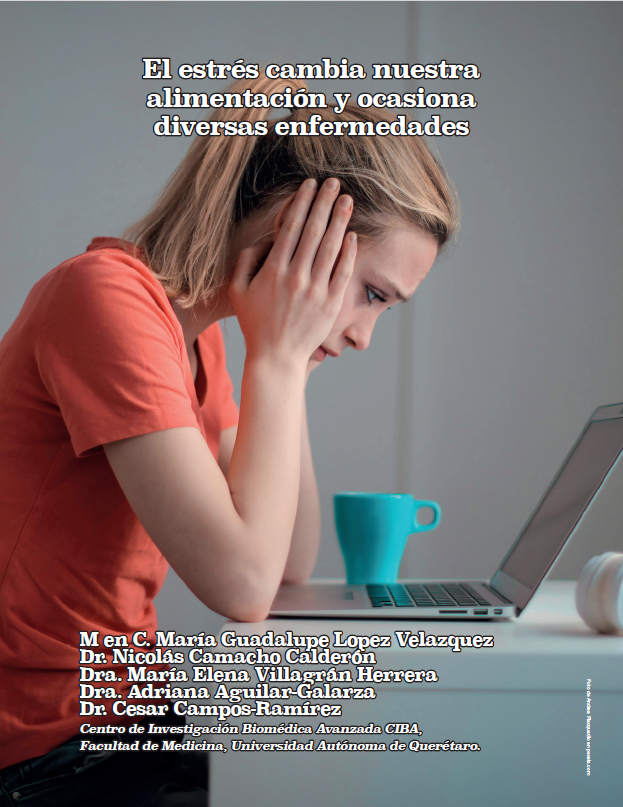El estrés cambia nuestra alimentación y ocasiona diversas enfermedades
Abstract
During the last decades, society has experienced a drastic lifestyle change in every sense, climate, workplace, technology, diet and diseases among others. Regarding diseases, an alarming increase in mental illnesses has been reported, among which stress is one of the most prevalent. This mental disorder characterized by a general feeling of discomfort accompanied by manifestations in our body such as pain or fatigue has been associated with multiple diseases. However, there is very little information in Mexico that associates the growing phenomenon of stress with the health crisis of chronic diseases such as obesity, diabetes, and hypertension, which are the main causes of death in the country. These diseases are mainly caused by poor diet, among other factors. In this work we propose that this poor diet could be caused, at least in part, by the experience of stress that the population is suffering.
Downloads
References
Cole, S. Social regulation of human gene expression: mechanisms and implications for public health. Am. J. Public Health 103, pp. 84–92. 2013
Cuspidi, C., Giudici, V., Negri, F., Sala, C. Nocturnal nondipping and left ventricular hypertrophy in hypertension: an updated review. Exp. Rev. Cardiovasc. Ther. 8, pp. 781-792. 2010
Giskes, K., van Lenthe, F., Avendano-Pabon, M., Brug, J. A systematic review of environmental factors and obesogenic dietary intakes among adults: are we getting closer to understanding obesogenic environments? Obes Rev. 12, pp. 95-106. 2010
Morris, M., Beilharz, J. Maniam, J., Reichelt, A., Westbrook, R. Why is obesity such a problem in the 21st century? The intersection of palatable food, cues and reward pathways, stress, and cognition. NeurosciE & Biobehavioral Reviews. 18 pp. 36-45. 2015
O’Connor, D., Branley-Bell, D., Green, J., Ferguson, E., O’Carroll, R., O’Connor, R. Effects of childhood trauma, daily stress and emotions on daily cortisol levels in individuals vulnerable to suicide. J. Abnorm. Psychol. 129, pp. 92–107. 2020
O’Connor, D., Thayer, F., Vedhara, K. Stress and health: A review of psychobiological processes. Annual review of psychology, 72, pp. 663-688. 2021
Pool, E., Brosch, T., Delplanque, S., Sander, D. Stress increases cue-triggered “wanting” for sweet reward in humans. J of Ex Psycho: Animal Learning and Cognition. 41, pp. 128. 2015
Swinburn, B., Sacks, G., Ravussin, E., Increased food energy supply is more than sufficient to explain the US epidemic of obesity. Am. J. Clin. Nutr. 90, pp. 1453–1456. 2009






